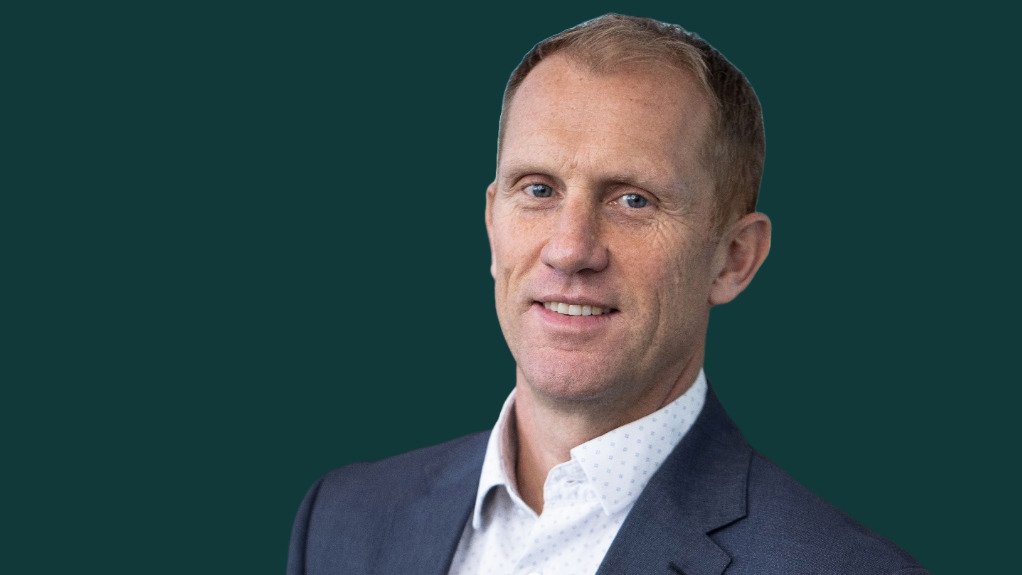‘Necom 2.0’ to focus on system-wide constraints to electricity security and affordability
Amid waning loadshedding, government and business have agreed to begin “repurposing” the National Energy Crisis Committee (Necom) to shift focus from interventions aimed at arresting the operational crisis at Eskom’s coal stations to addressing system-wide pressures, including growing concern over electricity affordability.
Speaking following the first meeting between members of the Cabinet and senior business leaders since the formation of the Government of National Unity, Energy Council of South Africa CEO James Mackay said there was agreement that it remained urgent to accelerate the market reforms initiated under the Energy Action Plan to facilitate the competition required for a least-cost system outcome.
“Urgent action is required to ensure a stable transition and to address looming challenges,” he said during a briefing following the meeting convened by President Cyril Ramaphosa on August 13.
He listed these challenges as including:
- Delayed investment in new generation and grid-expansion projects, which would continue to undermine economic growth if not addressed;
- Rising system costs linked to inefficiency, municipal utility service failures and rising debt, which were resulting in unaffordable tariff hikes for communities and businesses; and
- The need to implement complex market reforms and decarbonisation to sustain export competitiveness as countries moved to implement carbon border adjustment mechanisms.
It was agreed that business, Eskom and the Presidency should now focus on transmission, market reform, municipal utilities and new energy generation under what Mackay termed ‘Necom 2.0’, where priority would be given to mobilising the skills and capacity required to accelerate the reforms.
There was no resolution, however, on the approach that should be taken to electricity pricing, with Eskom reportedly preparing an allowable revenue submission that could result in a hike of 36% on April 1 next year.
The meeting did agree, however, that the Electricity Regulation Amendment Bill – which had been approved by both houses of Parliament, but which had not yet been signed – remained a priority.
Trade, Industry and Competition Minister Parks Tau said that the legislation was still being assessed by the Presidency for its constitutionality and no timeframe was provided for its possible signing.
The South African Local Government Association (Salga) and the National Treasury were deliberating on the constitutional concerns raised by Salga to find a way of implementing the legislation, which was regarded as critical for facilitating a transition-aligned electricity supply industry.
Likewise, certainty was also awaited regarding the governance reporting lines for Eskom, given the winding up of the Department of Public Enterprises. Tau indicated that Ramaphosa was in the process of finalising the delineation of governance responsibilities.
In developing a new critical path for Necom, Mackay said that emphasis would be placed on clarifying the rules for the transition plan, the absence of which came to the fore recently when Eskom objected to the licensing on new private energy traders. This, even though the National Energy Regulator of South Africa had already issued six trading licences.
Mackay said a rules-based transition was required for all participants, including Eskom, which needed rules within which they could operate and to avoid placing the entity in a “conflicted position”.
Article Enquiry
Email Article
Save Article
Feedback
To advertise email advertising@creamermedia.co.za or click here
Press Office
Announcements
What's On
Subscribe to improve your user experience...
Option 1 (equivalent of R125 a month):
Receive a weekly copy of Creamer Media's Engineering News & Mining Weekly magazine
(print copy for those in South Africa and e-magazine for those outside of South Africa)
Receive daily email newsletters
Access to full search results
Access archive of magazine back copies
Access to Projects in Progress
Access to ONE Research Report of your choice in PDF format
Option 2 (equivalent of R375 a month):
All benefits from Option 1
PLUS
Access to Creamer Media's Research Channel Africa for ALL Research Reports, in PDF format, on various industrial and mining sectors
including Electricity; Water; Energy Transition; Hydrogen; Roads, Rail and Ports; Coal; Gold; Platinum; Battery Metals; etc.
Already a subscriber?
Forgotten your password?
Receive weekly copy of Creamer Media's Engineering News & Mining Weekly magazine (print copy for those in South Africa and e-magazine for those outside of South Africa)
➕
Recieve daily email newsletters
➕
Access to full search results
➕
Access archive of magazine back copies
➕
Access to Projects in Progress
➕
Access to ONE Research Report of your choice in PDF format
RESEARCH CHANNEL AFRICA
R4500 (equivalent of R375 a month)
SUBSCRIBEAll benefits from Option 1
➕
Access to Creamer Media's Research Channel Africa for ALL Research Reports on various industrial and mining sectors, in PDF format, including on:
Electricity
➕
Water
➕
Energy Transition
➕
Hydrogen
➕
Roads, Rail and Ports
➕
Coal
➕
Gold
➕
Platinum
➕
Battery Metals
➕
etc.
Receive all benefits from Option 1 or Option 2 delivered to numerous people at your company
➕
Multiple User names and Passwords for simultaneous log-ins
➕
Intranet integration access to all in your organisation



















